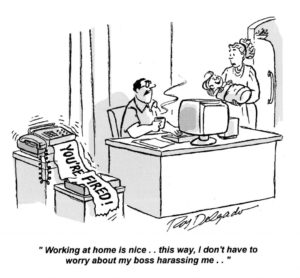However, just because other Silicon Valley companies have implemented remote work arrangements, that doesn’t mean every company allowing working from home takes a completely hands-free approach to the act, simply installing an IP telephony system and telling their employees to do their work whenever they want, wherever they want, as long as they get it done. In fact, the most successful companies with the most successful remote work arrangements tend to build their workforce from the ground up with remote-oriented employees, or they place firm boundaries on their remote working policies, or they give their employees all the freedom they could ever want while simultaneously incentivizing them to spend every waking hour at the offices.
Essentially, the most successful forward-thinking companies use work arrangements as an addition to traditional work structures instead of as a substitution. Not only that, these companies think through and organize their remote work structures with a lot of care, a lot of thought, and a lot of oversight, something to keep in mind when implementing your own remote work policies.


